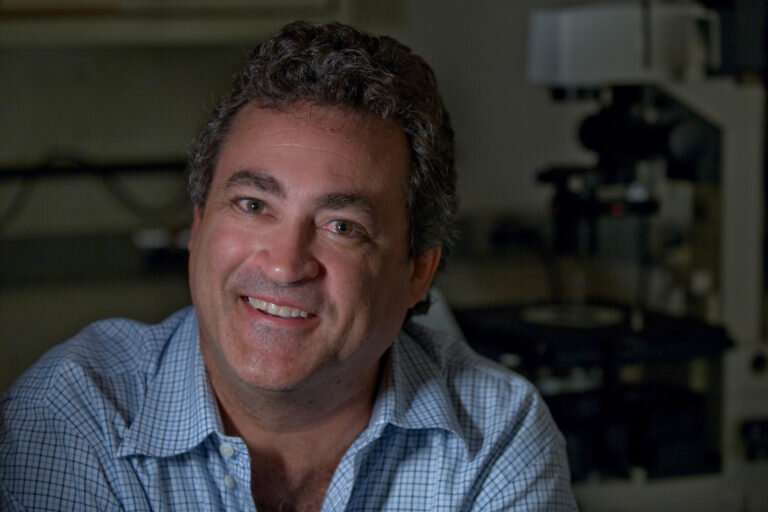Study touts new method to reduce cognitive side effects of brain cancer radiation treatment

In hopeful news for brain cancer patients, researchers from the University of California, Irvine and the University of Lausanne in Switzerland have discovered how an experimental technology called FLASH radiotherapy dramatically reduces the adverse cognitive side effects unleashed by traditional radiation treatments.
"Although more research needs to be done, this has the potential to revolutionize cancer care worldwide," said Charles Limoli, a professor of radiation oncology in UCI's School of Medicine and co-author of the study, which appears online this week in Proceedings of the National Academy of Sciences.
Unlike current radiotherapy treatments, which target tumors with low-dose ionizing radiation for several minutes per session and invariably damage surrounding brain tissue, FLASH employs a much higher dose of radiation but only for milliseconds. Overall, the subjects received the same amount of radiation, but FLASH delivered it in a much shorter time frame.
In tests on mice, the quick-burst technique sharply reduced collateral cell damage and thereby reduced the learning and memory problems and mood disorders associated with conventional radiation, according to the study.
Working with Swiss radiobiologist Marie-Catherine Vozenin, who pioneered the technique in 2014, Limoli's UCI team used laboratory mice and a battery of tests to analyze "the FLASH effect" and decipher how it works. Their conclusion: The split-second duration of FLASH irradiation – delivered 3,000 times faster than conventional treatments – produced lower levels of toxic hydrogen peroxide in brain cells. Limiting that chemical reaction protected the brain from short- and long-term damage, the research found. But FLASH was just as effective against tumors as current treatments.
Although previous animal studies have demonstrated FLASH's promise as a cancer treatment, this is the first one to show long-term (6-month) cognitive benefits and explain how the method reduces side effects, Limoli said. "Oncology clinics and radiotherapy device manufacturers across Europe and the U.S. are now scrambling to advance this technology," he added.
It will take about five years to refine the radiotherapy devices and complete the additional studies needed to bring FLASH treatments to human patients, Limoli predicted.
More information: Pierre Montay-Gruel el al., "Long-term neurocognitive benefits of FLASH radiotherapy driven by reduced reactive oxygen species," PNAS (2019). www.pnas.org/cgi/doi/10.1073/pnas.1901777116

















